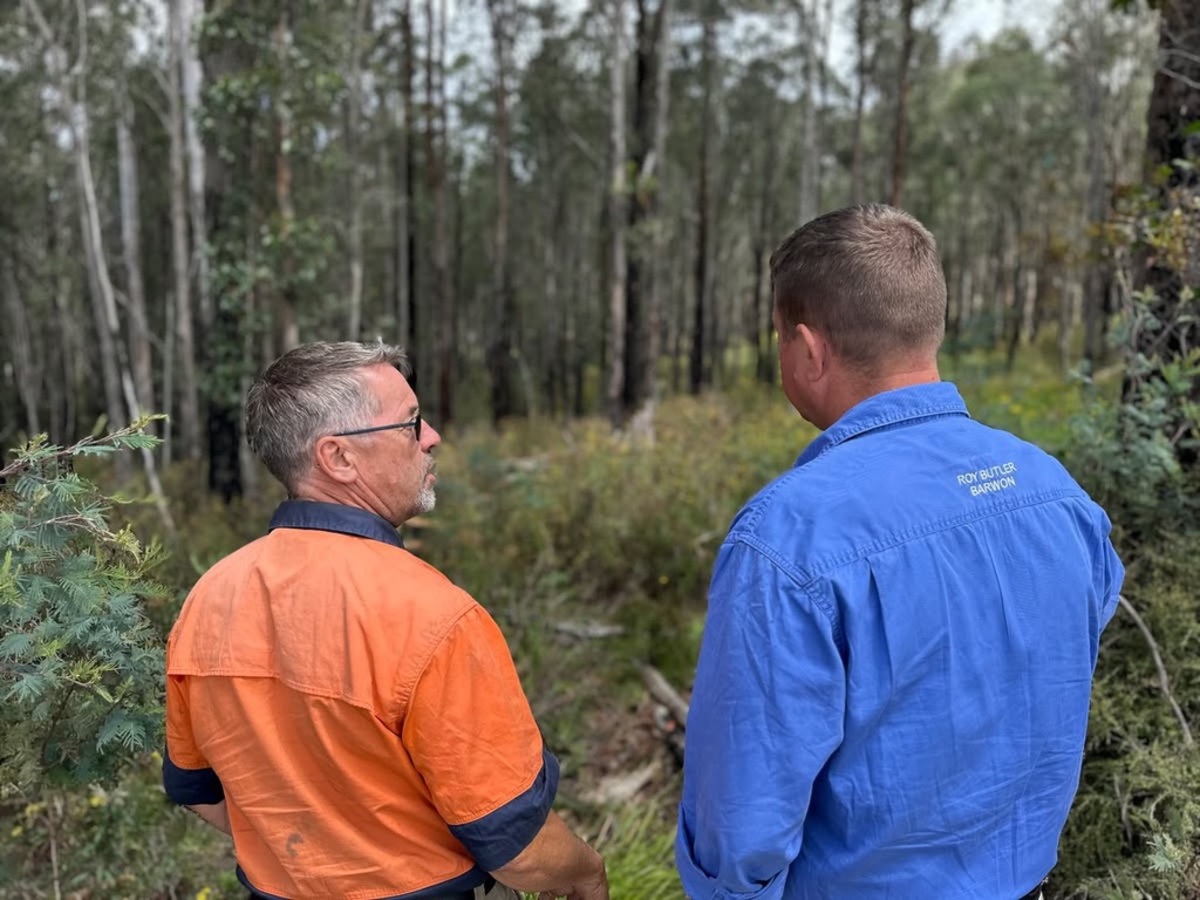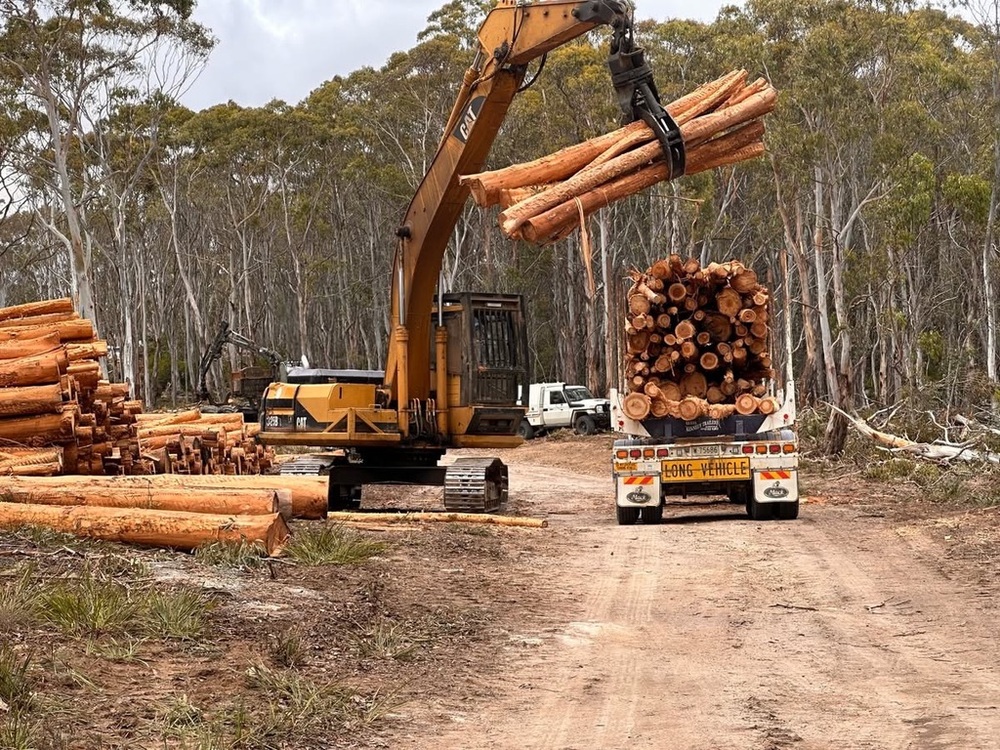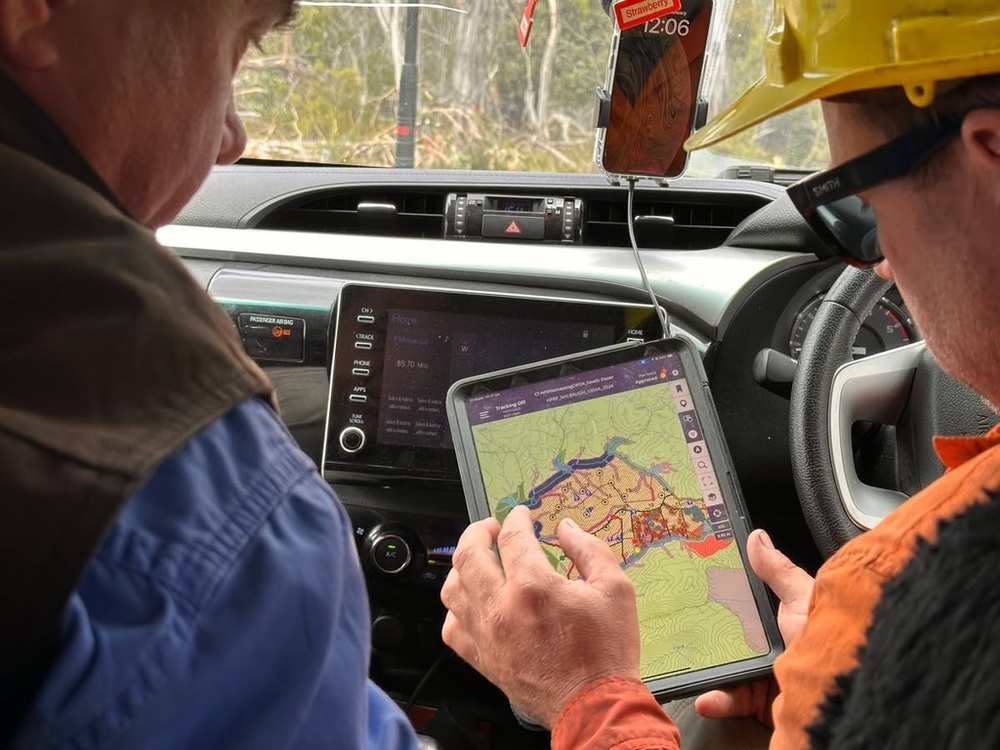Strategic forestry could help manage the bush - Butler
Angie White
24 January 2025, 8:40 PM
 Roy Butler MP connecting with forestry experts
Roy Butler MP connecting with forestry experts Member for Barwon Roy Butler has called for a revised look at the value of the forestry industry in managing the bush.
This follows a tour last week in which the State politician spent time with industry members and got an update on current fortunes in the once booming sector.
“Timber is a renewable resource; the industry should be thriving in NSW. However, successive governments have politicised it and made it increasingly difficult for Australian forests to be managed, and for timber to be used for local purposes," he said.
“We once had a thriving industry in Barwon, in places like Baradine and Mendooran, unfortunately these industries are now gone along with the jobs they offered."
Mr Butler acknowledged the value in cultural burning. "Active management encourages new growth, which is the preferred food for our native species and mitigates the risk of fires.
“The industry is highly regulated by the Environment Protection Authority (EPA) and Local Land Services (LLS), which control the monitoring and compliance. It creates jobs for regional and rural communities all the way down the supply line.
“I know forestry is not for everyone, but as someone who wants to see local manufacturing and industry in Australia, with tight regulations and rules, I'd rather we manage our land and harvest timber here than destroy landscapes overseas without regulation.

Roy Butler Independent Member for Barwon - Image: supplied.
Mr Butler said he would like to see better collaboration between government and industry and a return of active management to appropriate forests in Barwon.
Dozens of readers took to social media debating the subjects with a cross section of opinions.
One person wrote, 'successive governments have planned to and implemented sustainable energy strategies based on renewable sources. Yet today we have the ludicrous notion that our most sustainable renewable resources “timber” shouldn’t be allowed because of a potential threat to native habitat.

Image supplied.
“Of course, the safety protections and protocols need to be implemented safeguarding native species and fostering biodiversity. If you can legislate to implement an enormous regional energy zone combining wind and solar farms across vast tracts of prime agricultural heartland, then a properly regulated 'renewable industry' such as the timber industry is a no brainer," the reader said.
“Creating jobs and industries should never be about one section of the community sacrificing their rights to exist at the expense of another’s advancements. Roy is 100% correct in that a serious study of harvesting methods should be undertaken to foster development of a sustainable Timber industry that isn’t politicised out of existence. We need our home-grown industry for survival," they said.
While another reader offered this, “What annoys me about those who slam the timber industry and try to blockade the forests, is their hypocrisy. When a compartment is logged, trees are planted to replace them. Yet when new highways and industrial estates are cleared, those areas of forests are gone forever, yet never a whimper from the green groups.”

Mr Butler learning about forestry - image supplied.
Private forestry an option
According to Mr Butler, to harvest timber, you require dual consent from your local LGA to comply with its LEP and the EPA through a private native forest plan. Each council is different; some require a DA, and others don't.
“Private native forestry can be an incredibly useful tool for landholders with large forested areas. It can mitigate fires and add economic value to land that would otherwise be unusable.
Mr Butler said he would like to see this returned to Barwon in appropriate forests as a fire mitigation tool and a way of stimulating local employment.
“If we don't manage our forests, we end up with very hot fires that burn out of control at times of the year when we don't want fires. Active management means that fuel is reduced, the industry has products, and the landscape is more reflective of what it was under Aboriginal management,” he said.



